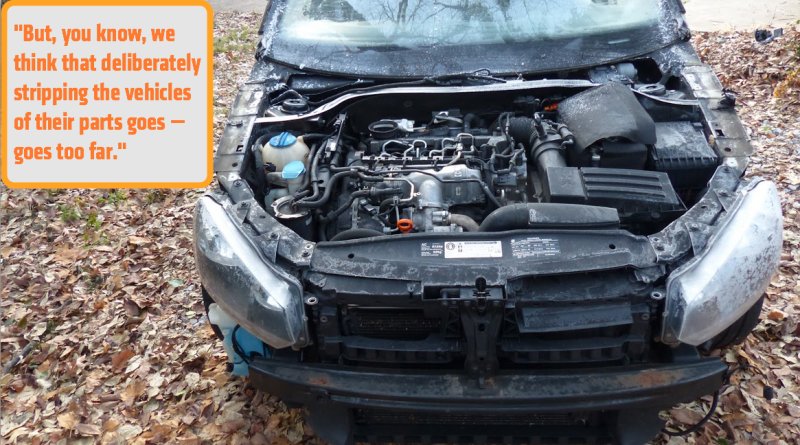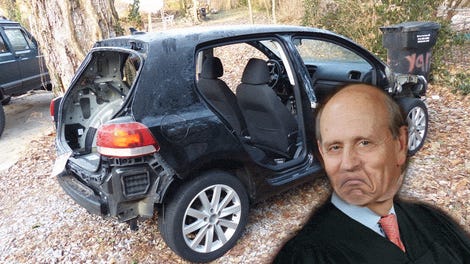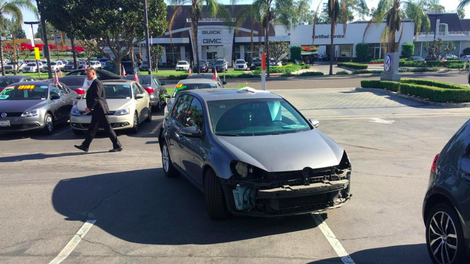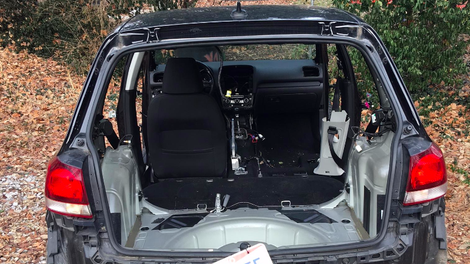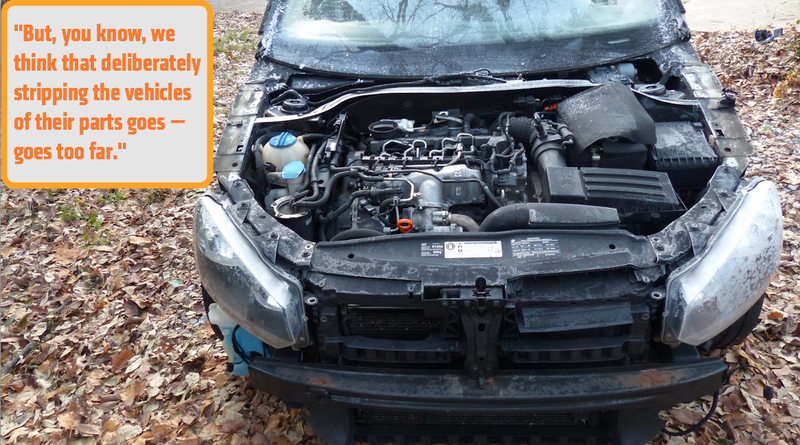
The full transcript of yesterday’s status conference on the 2.0-liter diesel settlement (which we mentioned yesterday) just went online. Here’s what the judge, and representatives from Volkswagen, the Federal Trade Commission, and the Plaintiffs’ Steering Committee had to say about why VW owners shouldn’t strip their vehicles.
Advertisement
The transcript, shown below, includes a lengthy discussion about owners removing parts from cars—an issue undoubtedly brought in front of the court because of our initial story about it last week.
Volkswagen Dieselgate: December 22 Transcript by David T on Scribd
Right off the bat, Judge Breyer called upon Volkswagen’s attorney Robert Giuffra to provide a status update on the 2.0-liter diesel settlement. Giuffra spent a few moments talking about how well the buybacks were going, and how VW had already sent offers to 200,000 TDI owners (an impressive figure, no doubt). But the crux of Giuffra’s update dealt with the stripping issue:
Advertisement
I wanted, your Honor, if possible, to flag one issue for the Court. While the great majority of Volkswagen customers participating in the 2-liter settlement have taken very good care of their vehicles. A handful of owners have brought in vehicles for buyback that have been regrettably deliberately stripped of parts. In fact, at least one owner went so far as to strip the car of almost every removable part, including seats, doors, a radio and even the air bag.
He went on, describing the reason why the agreement did not place strict requirements on vehicle condition, and voicing his disapproval of class members snagging parts from their vehicles:
Advertisement
Sponsored
Now, under the settlement agreement there was an allowance made for class members whose vehicles were in accidents or otherwise suffered from harm through no fault of their own. But, you know, we think that deliberately stripping the vehicles of their parts goes — goes too far.
He continued, discussing why this shouldn’t be allowed, and asking the court denounce the behavior of these few bold VW owners:
Advertisement
And, in fact, the buyback announced provided for in the agreement were based on the value of the cars as a whole, including their parts. So, respectfully, Volkswagen would ask the Court to advise class members that if they wish to receive settlement benefits, they should not be engaging in deliberate parts stripping, and we would very much appreciate that, your Honor.
Judge Breyer agreed wholeheartedly with VW’s sentiments, saying that the settlement had written in a simplified way to expedite the buyback process:
And I would echo that. I think — I think you’re absolutely correct, Mr. Giuffra. The amounts, the whole process was based upon what I would say the average car or at least the class of cars without the necessity of looking at each individual car. Because we’re talking about 400,000, 500,000 cars, it would have lengthened this process and complicated it enormously.
And of course, he’s gotta talk about the spirit of the agreement:
Advertisement
And so I think — I think that not just in the spirit, but clearly the purpose of the agreement was to accept these cars by Volkswagen in the condition that they were — they were in as they were being driven on the road, and that’s — and not to strip the cars.
He finished by saying that if the problem continues, the court will have to take action:
Advertisement
And, obviously, if there is any concern in a particular case or it becomes a larger problem, the Court will address it upon motion of the parties. But I think that a word of caution is appropriate at this time.
Jonathan Cohen, representing the Federal Trade Commission, chimed in to refer to the stripping a “bad faith behavior”:
Advertisement
We are definitely absolutely against a bad faith behavior by consumers or dealers or companies or anyone, but we want to make sure that consumers are not concerned that eligibility for compensation depends on the vehicle’s superficial condition, because it doesn’t under the orders and the order language governs.
Cohen finished by saying he doesn’t think the court will have to make changes to the settlement, and that VW owners will cease having fun:
There is a procedure, of course, to modify the settlement should that become necessary, but we don’t believe that that is necessary.
Elizabeth Cabraser for the plaintiffs’ steering committee finished off the discussion about stripping cars, suggesting that owners who did it were taking advantage of a feature meant to help them, saying:
Advertisement
The point of the settlement was to be efficient as possible, as we can be with cars in the real world. And that is why the superficial condition of the cars, as your Honor noted, is not determinative of value.
She went on, saying:
Advertisement
We wanted to give all the consumers the benefit of that doubt so that every car had a clean trade value, and we appreciate that class members are participating in the settlement in that spirit. And it is a spirit of settlement. And it is a matter of the parties, both the defendants and the class members, being fair and reasonable all around.
So there it is. Four major players involved in the dieselgate case— VW, the U.S. District Court of Northern California, the Federal Trade Commission and the Plaintiffs’ Steering Committee— all disapprove of owners stripping their vehicles, at least in part, because the buyback was based on the value of the whole car.
Advertisement
How none of them thought to address this in the actual settlement document is beyond me, but now, two months after final approval, we’ve got an answer in the form of a hearing transcript.
#stripgate— A scandal within a scandal. Scandal-ception.

